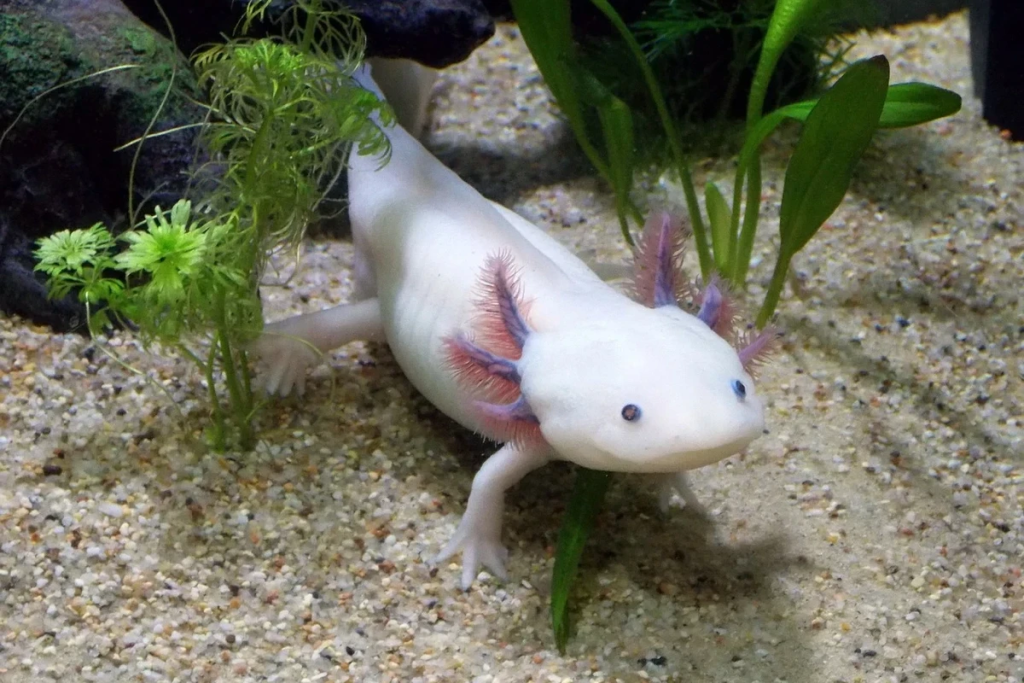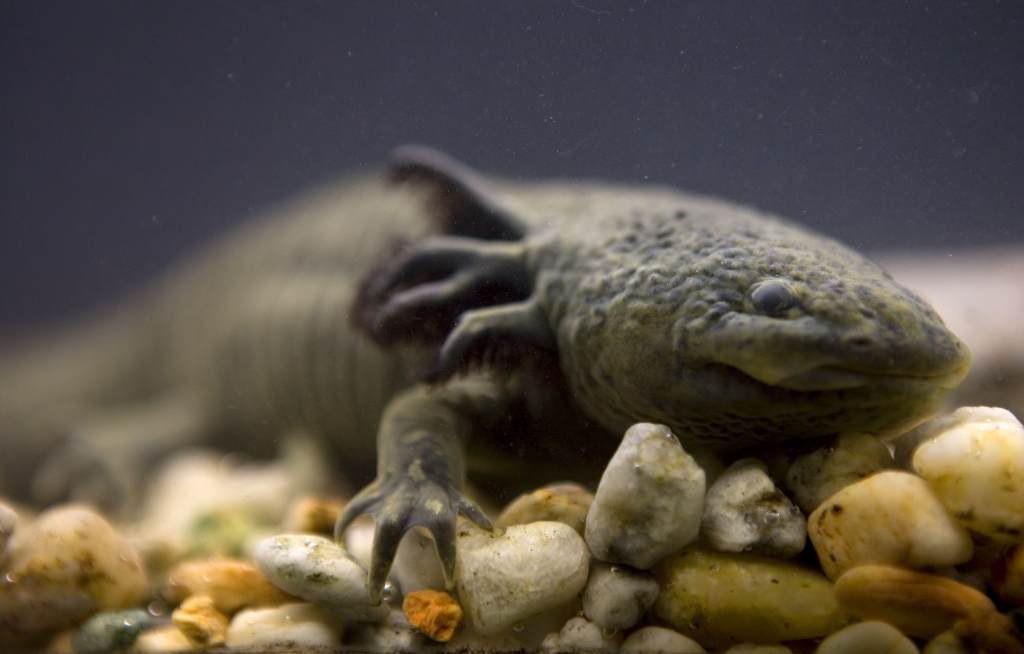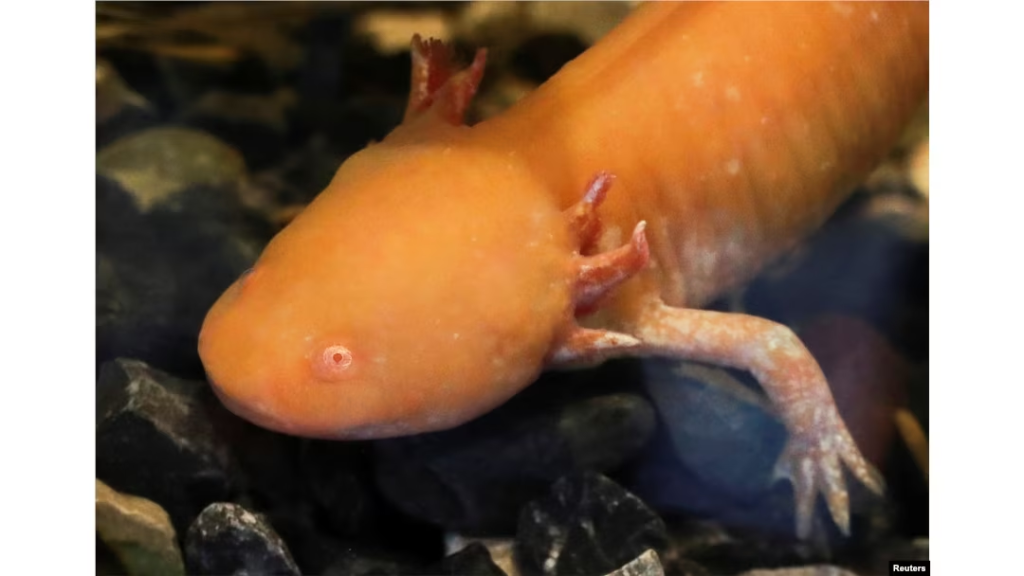Saving the Axolotl: A Urgent Call for Conservation
Saving the Axolotl: A Urgent Call for Conservation

The axolotl, a native salamander species found in Mexico, is facing a critical threat of extinction. In an effort to protect these unique creatures, ecologists from Mexico’s National Autonomous University have launched a fundraising campaign called Adoptaxolotl. This campaign aims to raise funds for conservation efforts and research to save the axolotls from the brink of extinction. In this article, we will explore the challenges faced by axolotls, the importance of conservation, and the initiatives being taken to preserve these fascinating creatures.
The Plight of the Axolotl

Axolotls, often referred to as “water monsters,” are facing a rapid decline in population. In their main habitat in Mexico, the population density of axolotls has plummeted by 99.5% in less than two decades, according to scientists. Various factors contribute to this decline, including encroaching water pollution, a deadly amphibian fungus, and the presence of non-native rainbow trout.
In the past, conservation efforts have primarily focused on the Mexican axolotl found in Xochimilco, but there are other species of axolotls across Mexico that also require attention. The expanding urbanization of Mexico City has led to the deterioration of water quality in the canals where axolotls reside. Additionally, the presence of rainbow trout, which escape from farms, poses a threat to axolotls by displacing them and competing for their food.
The Importance of Axolotl Conservation

The axolotl holds immense ecological and scientific significance. These creatures have captured the imagination of people in Mexico and beyond, becoming cultural icons for their unique appearance and remarkable ability to regrow limbs. Furthermore, researchers believe that studying the axolotl’s regenerative abilities could unlock the secrets to tissue repair and potentially aid in cancer recovery.
Conservation efforts for the axolotl extend beyond preserving a single species. The survival of axolotls contributes to the overall health and balance of their ecosystem. As top predators, axolotls play a crucial role in controlling populations of prey species and maintaining the ecological equilibrium of their habitats.
The Adoptaxolotl Campaign

To address the urgent need for conservation, the Adoptaxolotl campaign has been relaunched to raise funds and promote awareness. The campaign encourages people to virtually adopt an axolotl by making a donation of as little as 600 pesos (about $35). Virtual adoption offers donors live updates on the health of their adopted axolotl, fostering a sense of connection and involvement in the conservation efforts.
Last year, the Adoptaxolotl campaign raised over 450,000 pesos ($26,300), which went towards an experimental captive-breeding program and habitat restoration in Xochimilco. However, the resources allocated for research and monitoring are still insufficient. Ecologists emphasize the need for more comprehensive monitoring of axolotl populations across Mexico City and the entire country.
The Urgency of Action
Without accurate data on the number and distribution of different axolotl species in Mexico, it is challenging to determine the exact extent of their decline and prioritize conservation efforts. Alejandro Calzada, an ecologist leading a team of researchers, stresses the need for urgent action. Thorough research and monitoring are crucial to inform effective conservation strategies and prevent the irreversible loss of these unique creatures.
The Role of the Mexican Government
While ecologists and researchers rely on donations and volunteers, the Mexican government’s involvement is essential in ensuring the long-term conservation of axolotls. However, recent budget cuts pose challenges to the efforts of the country’s environment department. Over its six-year term, the current administration will have given 35% less funding to the department compared to its predecessor, according to budget analysis. This reduction in funding further underscores the importance of public support and international collaboration in preserving the axolotl.
The Way Forward: Research and Restoration
To address the urgent conservation needs of axolotls, scientists and ecologists are working tirelessly to conduct research, restore habitats, and raise public awareness. Luis Zambrano González, a scientist from the National Autonomous University, plans to initiate a new census in March to gather updated data on axolotl populations. This census will provide crucial insights into the current status of axolotls and guide future conservation efforts.
In addition to census efforts, conservation programs should expand beyond Xochimilco to include other habitats where axolotls are found across Mexico. Protecting these diverse habitats will help ensure the survival of all species of axolotls and maintain the ecological balance of their respective ecosystems.
The Global Significance of Axolotl Conservation
The conservation of axolotls extends beyond the borders of Mexico. These unique creatures have garnered attention and interest from scientists and nature enthusiasts worldwide. Collaboration between international organizations, researchers, and governments is essential for sharing knowledge and resources to effectively protect the axolotl and its habitat.
Conclusion
The axolotl, a fascinating salamander species native to Mexico, is on the brink of extinction. Urgent action is needed to conserve these creatures and their habitats. Through initiatives like the Adoptaxolotl campaign and increased research efforts, ecologists and scientists are striving to protect the axolotls from threats such as pollution, disease, and habitat loss. The survival of the axolotl holds not only ecological importance but also the potential for groundbreaking scientific discoveries. By working together, we can ensure the continued existence of these extraordinary creatures and preserve the biodiversity of our planet.




